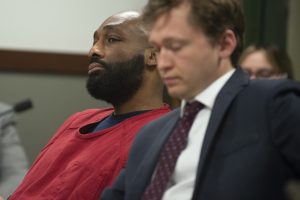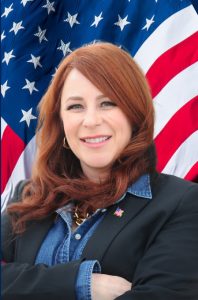
By: Jack Flemming, A Special to Kenosha County Eye
It takes more than being informed about candidates and their platforms to make the most of your voting voice. Of course, you should be well-versed in all the candidates’ stances and histories when choosing who to vote for, but the mistake many voters make is assuming that they will only have to make that choice once. Contrary to how most people view them, political campaigns are not a horse race—it’s often not a situation in which you bet on your favorite runner and cheer them on all the way to the finish line. Most voters want their favorite person to win and only that person. While it is everyone’s right to vote his or her conscience, there is an important question that often goes unanswered. Which is more important: getting the one person you want into office, or preventing candidates who don’t align with your values from getting into office? In each election, there are times to consider both of these things and there is a significant amount of strategy that goes into finding the right answer. Becoming more politically savvy and understanding the broader picture will help you avoid disappointment in election results and have a better chance at having your values represented in elected office.
Aside from candidate choice, other major things to consider as a voter include whether there is a primary, whether a candidate is an incumbent, typical voter turnout and affiliation in your area, the current social climate and hot-button issues, and how many candidates are in the race. Some of the lesser-known aspects of elections to consider might be whether or not a candidate has much fundraising power, at what point in time they entered the race, how their campaign is being run and marketed, who their donors are, and their voting history. Any one of the factors listed above can be the sole deciding factor in a candidate’s success or downfall, and the political climate is more volatile than the stock market or the weather. As much as we would like to believe the platitudes we’ve been spoon-fed about “just getting the vote out” or donating enough money, the fact is that there are too many details and components to ensure victory for any one candidate no matter how promising they seem. It’s an uncomfortable truth that sets many on edge, but voters who are inflexible in their choice of candidate create split votes and are therefore instrumental in party losses.
Another interesting factor to consider that has recently come into the spotlight is that of “Never Voters.” I write this as a Conservative and of course the most prominent examples in my party are the Never Trumpers, but the phenomenon of refusing to vote for someone who might not be ideal but who could get the job done and has a better chance of winning spans across all parties, campaigns, and levels of government. Maybe you’re a Never Vos-er? A Never Kleefisch-er? But consider that if the Never Trumpers had their way in 2016, we would have ended up with Hillary Clinton in office and she would have been handed three picks to the U.S. Supreme Court thus changing the entire country’s future for at least the next 20 years. It’s hard to deny the effect of voters who dig their heels in and refuse to consider the larger picture of how the political machine functions and the potential echoes that will last because of their reluctance.
That’s not to say that all split vote scenarios are due to voter hesitation—some of it is from good old-fashioned voter ignorance or an unwillingness to admit that they don’t know what they don’t know. As an example, lately I’ve seen voters building a trend of rejecting anyone they deem an “establishment” candidate, which seems to be defined as any candidate who receives a party endorsement, or a smattering of other things that get tossed around according to convenience. But do they understand how endorsement works and why it exists at all? The evidence would suggest no, they don’t. Endorsement exists to build unity and momentum around a single candidate. Why? Because unity is specifically the antidote to split votes. Most voters don’t seem to understand that there are no high-powered party leaders sitting in a secluded, smoky cigar lounge deciding on who the party will endorse. For the GOP, party endorsement is decided by average voters who attend the Republican National Convention and vote for a candidate, so it’s essentially an election process. But for many less educated voters, instead of asking themselves “how do we better utilize our voice within the party,” they gossip and scheme against the so-called “establishment” and whip themselves into a heated frenzy in which they feed on each other’s fear and political frustrations. The whole thing is quite reminiscent of Don Quixote and the villainous windmill. There is no doubt that politics will always be full of emotional and impassioned people, at that is a good thing to my mind. But when emotions override understanding, humility evaporates and ignorance takes root. Well-meaning groups begin to morph into something closer to angry mobs, the only inevitable result is a breakdown of unity and a subsequent party loss.
It’s not difficult to find instances of political loss that were the direct result of a split vote. Would Romney have won the presidency in 2012 if not for Gary Johnson sweeping up votes in Florida? Would Leah Vukmir have won the Senate seat if not for Kevin Nicholson actively campaigning against her? Would Hillary have won over Trump if not for the Green Party? There’s a lot of talk of unity these days, whether it’s uniting as a country, a community, or a political party, but every word of it seems to be empty speech. Few intend to truly unite if it means any measure of compromise. The political climate is a strange one now, dare I say unprecedented (I know we’re all weary of that word these days). Voters have become more selfish, demanding, and ignorant, and they justify it all in the name of whatever issue concerns them most at that time. They lazily gobble up misinformation if it sounds like it will support what they want, never paying much mind to whether or not it’s true, what the context is, where it came from, or if it’s been twisted. They attack those who agree with them on 99% of political issues if the offenders dare to put forth even the slightest deviation in perspective, even if said offenders are a member of their own party. Right now, you might be reading this thinking: Yes, if only THEY would wake up and see what they’re doing!
But what if it’s you? What if you are the unyielding voter? What if it’s you that has been attacking your own and sabotaging unity? What if it’s you that has developed a bad habit of believing things you like to hear, rather than truths that don’t make you feel as good? Can you honestly say that if your favored candidate were shown to have poor fundraising or a lack of support from a key demographic, both critical pieces to winning an election, you would reconsider your choice in the name of the values you claim to hold dear? Or will you hold the disillusioned line with gritted teeth and blame the loss on those who voted for a candidate who may not have been your favorite, but who had the resources and the momentum to see things through? What if there were evidence that your candidate’s financial backers may be of dubious intention? Will you listen thoughtfully to the concerns of others and do your own due diligence? Or will you shout them down and do everything in your power to quiet them?
Every candidate is going to tell you their campaign is going like gangbusters and they’re up to their chin in voter support. It’s their job to manufacture excitement and hope, even when their campaign is looking grim in reality. But to further the values of your party, look at the facts: how is their fundraising? How many people attend their events? Are they campaigning in all the key voting districts or just sticking to those that favor them? What does their voting record look like and do you trust their decisions? Ask yourself key questions: is the reason I dislike the other candidate because of something intangible or vague like “they’re part of the establishment” or “they don’t support the working man?” Or do you have concrete issues that you disagree with them on? While polls aren’t perfect, they do give us a snapshot of the time in which they were done, so what do they say? If it appears the horse you bet on is limping, you’ll have to decide whether you will white-knuckle your pride or embrace a more strategic outlook. Will you be responsible for splitting the vote and putting the elected position at risk, or will you work with others toward a shared goal? Elections are not just a bubble to fill in—they’re an opportunity to outsmart your opponent and unify with those who agree with you on what’s best for society.




































3 Responses
Hello Mr. Flemming:
I understand wanting to move away from the cesspool of crime and corruption of Chicago. But why did you move here? In many ways, it is much worse here. Kenosha is the punk little brother to Chicago. As the second city to the Second City, we strive to close the gap and to become a purer, more condensed version of the hellhole to our south. We have a corrupt, incestuous power structure. The community leaders hire their family members and other potential whistle blowers to keep them silent. Just like the Mob. Yes, no kidding. Why would someone fleeing crime and corruption move here? You must have inherited property. I don’t understand.
Kenosha worse than Chicago? This must be a troll comment
I don’t mean to be disrespectful, but please, open your eyes.